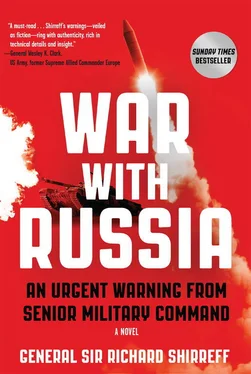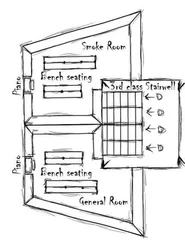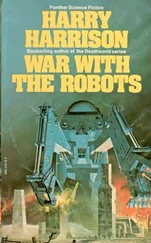Now it was Mainwaring’s turn to look shocked. He knew he owed his place as the Head of the Armed Forces to his ability to work the Whitehall machine and ingratiate himself with politicians. Now he was facing a personal disaster. He had been looking forward to his imminent retirement and taking his place in the House of Lords, but that had to be in jeopardy. For the first time in his carefully constructed career he had got it badly wrong. And what his wife would say when she heard was a different level of disaster altogether.
“Prime Minister.” He pushed such considerations aside and forced himself to speak calmly and authoritatively. “The Chiefs have just met and we’ve considered the position. We believe that the UK needs to show strength at a time like this. We’ve had a disaster… but we’ve faced disasters as a nation before and always come out of it.”
The Prime Minister looked at him. “What do you propose?”
“Prime Minister,” replied Mainwaring, “we have to accept that the sinking of HMS Padstow is an act of war by Russia and the invasion of Latvia means we are bound under Article Five of the Washington Treaty to come to their assistance. It is too late to send land forces, although we’ve given orders for them to go to immediate readiness to move. We’re concerned that a deployment of air forces—ours and theirs shooting each other down—might commit us earlier than we necessarily want to be committed. The recommendation of your Chiefs of Staff Committee, which I am authorized to pass on to you as your government’s principal military adviser…”
Walker could see the Prime Minister’s irritation at this pompous and long-winded soldier who had, on an instant, stopped using the word “I” and was already maneuvering to a position of joint blame and responsibility by using the words “we” and “committee.” But the Prime Minister also played this game and played it a lot better than this already failed general.
“Do get to the point, CDS,” he said tersely.
Mainwaring continued, “As I was saying, Prime Minister, the recommendation of your Chiefs of Staff is to deploy a strong naval force to the Baltic. It will be a demonstration of our solidarity with Latvia and the other Baltic states; it shows that we are a good NATO ally, but by poising ourselves at sea, we can remain uncommitted.”
“And what will this force consist of?”
“We propose to send a Task Group based on HMS Queen Elizabeth , Prime Minister.”
Walker knew that Queen Elizabeth , an aircraft carrier and the biggest ship ever to enter service in the Royal Navy, had just been commissioned. But he’d also noted in his daily scrutiny of the newspapers that various retired admirals, generals, and even air chief marshals had long been fulminating that the F-35 aircraft meant to fly off her decks had not yet been declared fit for operations. It was rare, in his considerable experience of Whitehall, for all three branches of the Services to agree on anything, but this seemed something they were all of one mind on, which was worrying.
“Boss, you might want to know if she has any aircraft yet?” Walker interrupted.
The Prime Minister raised a questioning eyebrow.
“Well…” Mainwaring paused. “It is correct that it will be some years before the F-35 Joint Strike Fighters we’re buying from the Americans will be operational. However, our considered military advice is that we can still have an important deterrent effect by embarking a Royal Marines Commando unit of around seven hundred men on board Queen Elizabeth , together with the Merlin and Chinook support helicopters needed to lift them. Also, the Task Group will have an amphibious ship in support—and that’s got landing craft, so that we can put the troops ashore if we need to.”
“And what do you suppose the Commando will do?” The Prime Minister was perplexed.
“Well, that’s the point, Prime Minister,” replied Mainwaring, his West Country burr moderating as he began to regain the initiative. “We retain great flexibility. If we need to put them ashore, we can. On the other hand, by poising off shore they’ll keep the Russians guessing as to our intentions.”
“And the Russians? How will they react?”
“It is our considered view that they would not dare attack the Queen Elizabeth . By sending the Task Force we would be saying, ‘Thus far maybe, but no further.’”
The Prime Minister looked at Walker.
“It’ll play well on the front pages, boss. Show we’re not being pushed about. Just like Maggie T… If in doubt, assemble a Task Force.”
“Then go for it, CDS.” The Prime Minister squared his shoulders and tried to look Churchillian. He thought, Perhaps I might be remembered as a war leader after all .
1500 hours, Monday, May 22, 2017
HMS Queen Elizabeth Middle Slip Jetty, HM Naval Base, Portsmouth
COMMANDER JAMES BUSH RN took one last look around the flight deck before heading into the forward island of the aircraft carrier to update the Captain in his cabin under the bridge. As Executive Officer of HMS Queen Elizabeth he was second in command and, as such, responsible for the day-to-day running of the ship and the efficiency of its crew. And today he had more than enough to think about. He’d been asleep in his married quarter on the edge of Portsdown Hill, overlooking the Royal Navy dockyard at Portsmouth, when the call had come through from the ship’s Duty Officer at 2:35 a.m.: Queen Elizabeth was to deploy to sea in three days’ time as lead ship of a British amphibious Task Force.
Twenty years in the Royal Navy, much of it spent at sea, meant that Bush was used to coming awake in an instant, accepting and digesting new and sometimes worrisome information and then acting decisively on it. But even he had felt compelled to ask the Duty Officer to repeat what he had just said, as his brain tried to absorb the enormity of it.
“In response to the Russian invasion of Latvia and the sinking of the mine countermeasures vessel HMS Padstow , is what it says here, Sir.”
Bush caught himself before he swore. He did not want anybody knowing his reaction to such news and anyway, it was important that he displayed no concern to the young duty officer who had just phoned him. That would come later when he saw his Captain. But he was, quite simply, aghast. Sending Queen Elizabeth to war without its fighter aircraft to protect it would be much like sending a tank into battle without shells; it might very much look the part, but without its offensive fire power, it would be as much use as a chocolate fireguard against other tanks. Aircraft carriers were floating airfields, no more, no less. Without aircraft to defend it, the carrier would risk becoming a vulnerable, high-prestige target; a very large, not very fast, and certainly not very maneuverable high-prestige target. And he was second in command of it.
At least , he thought to himself as he turned on the bedside light, realizing that he was going to have to wake his wife as he put on his uniform, the ship had been delivered on time and they had managed to do the majority of their work-up training . Which is why, he supposed, some idiot had decided they must be ready to fight.
There was a discreet cough from the other end of the phone and Bush realized he had been so shocked by this message that he had forgotten that the Duty Officer was now waiting for him to issue orders.
Bush was instantly the naval officer once again. “Thanks for the call. Now I want you to get the message out to the ship’s company. Initiate the emergency recall system and put out a warning order to the O Group, that’s all Heads of Departments. I want them all in the Ops Center at 0800 with a report on their preparations for departure for sea and where the problems are. Got that?”
Читать дальше












